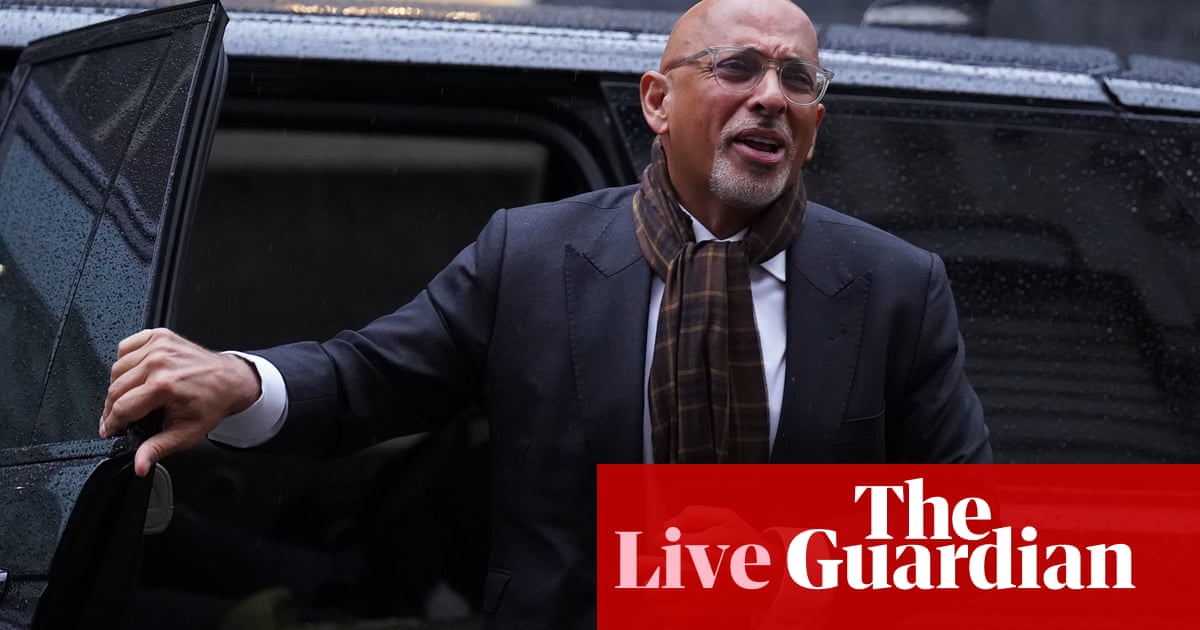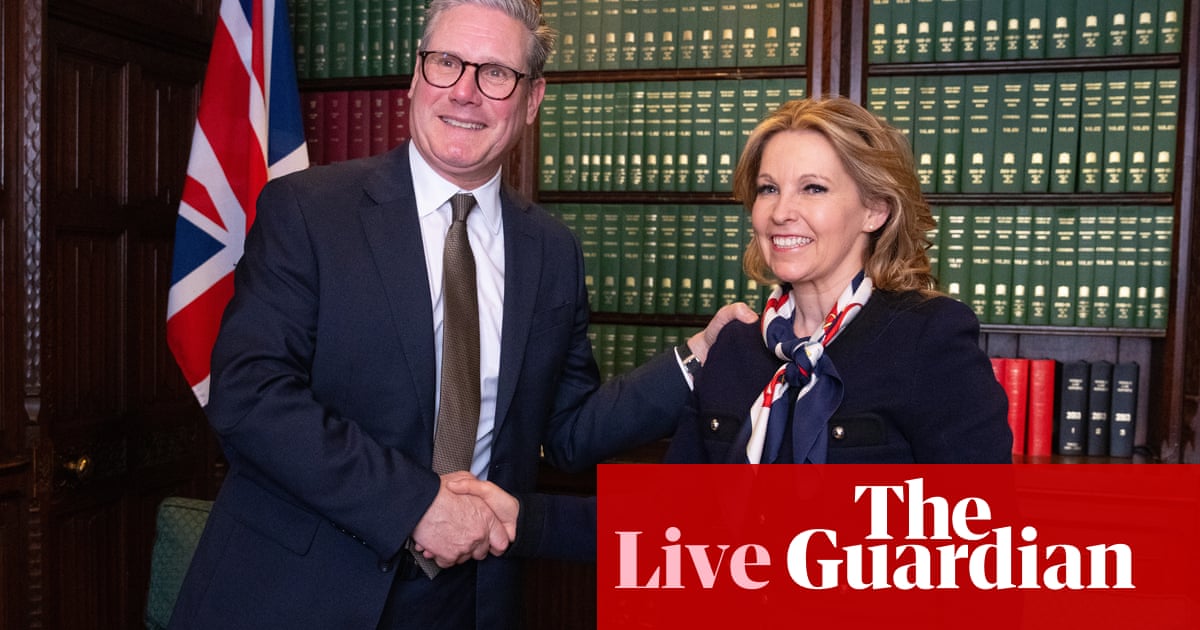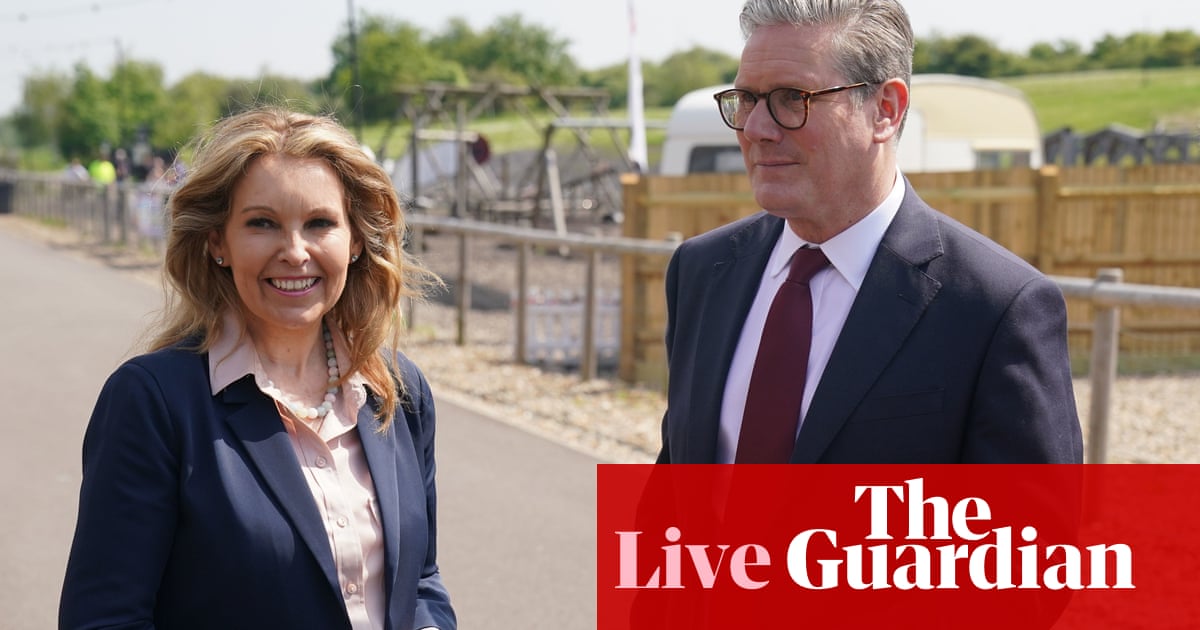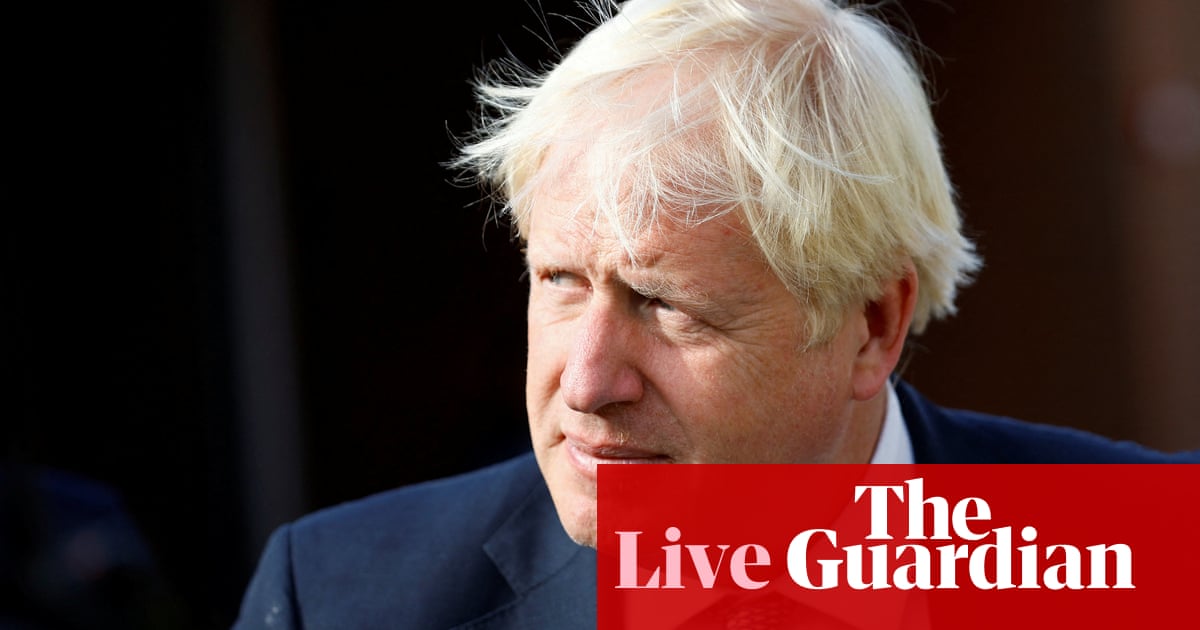
Early evening summary
Victoria Atkins, the Home Office minister, has dismissed claims that the government is involved in a “cover-up” intended to delay the publication of a report likely to expose police and media corruption. Speaking in response to a Commons urgent question, Atkins said that the Home Office had not even been given the report from the panel investigating the death of Daniel Morgan yet and that Priti Patel, the home secretary, was only insisting on seeing it ahead of publication to review it on national security grounds. Patel’s insistence on her right to redact the report has infuriated the panel that produced it, which insists that there are not potential national security issues with its contents, and as a result the panel is refusing to hand it over. Morgan was a private detective killed 34 years ago with an axe in a pub car park in south London. Chris Bryant, the Labour MP who tabled the urgent question, and one of the parliamentarians who did most to expose the media’s role in phone-hacking, told MPs that Morgan’s family had had no justice “thanks to corruption in the police and interference by News UK”. He asked Akins for an assurance that Patel has not discussed the case with News UK. He asked:
It is not difficult to see why powerful people, with very close friends in News International [Rupert Murdoch’s newspaper company, now called News UK] might want to delay or prevent this publication. So has the home secretary, or any of her advisers or officials, had any formal or informal discussion or correspondence on this matter with News UK, with Rebekah Brooks [the News UK boss] or with Rupert Murdoch? And will she publish the minutes of her department’s meetings with News UK over the past 12 months?
If not, won’t people conclude that the cover-up is still going on, and this isn’t the party of law and order, it’s the party of the cover-up?
Atkins sidestepped the question about contacts with News UK, but she insisted that the Home Office wanted to see the report published. She said the report would not be redacted or edited, but she added a caveat, saying the home secretary had to take into account national security. The SNP Peter Grant made a contrast between the government’s stance on this issue and its response to the revelations about the BBC and Martin Bashir. Grant told the Commons:
I can’t help thinking if things had been the other way round - if it had been Sun journalists who had lied to procure an interview with the late Princess of Wales and if it were the BBC that were alleged to be involved in covering up the reasons for a brutal murder on the streets of London - then the reaction on the government benches to this and [the BBC story] may have been very different.
The government will not “rush into any changes” following the inquiry into the BBC’s mishandled interview with Diana, Princess of Wales, a minister has said, while warning there could be a need for new editorial oversight of the corporation.
The British government has told all UK planes to cease flying over Belarus and summoned the country’s ambassador amid outrage over the arrest of an opposition blogger and his girlfriend when their Ryanair flight was forced to make an emergency landing in Minsk.
Priti Patel has declined to say how much, if anything, travellers to the UK might need to pay for a planned new digital visa system, part of a series of sweeping changes to the immigration and asylum system outlined by the home secretary.
Up to 8,700 patients died after catching Covid-19 while in hospital being treated for another medical problem, according to official NHS data obtained by the Guardian.
That’s all from me for today. But our coronavirus coverage continues on our global live blog. It’s here.
The UQ is over, but Chris Bryant is making a point of order. He says “national security” can be used to cover anything.
Charlotte Nichols (Lab) asks if the government will re-establish Leveson part two, which will have the power to investigate News UK.
Atkins says the panel has been working on this for eight years. She says the government wants the truth to come out.
Atkins insists the government has “no interest in editing this report, none whatsoever”. It wants the truth to come out, she says.
In response to a later question, to support her claim that Priti Patel needed to clear the support on national security grounds before its publication, Atkins said the home secretary was privy to national security considerations that only a very small number of people were aware of.
In her response to Chris Bryant (see 5.28pm), Victoria Atkins, the Home Office minister, said the Home Office cannot block the publication of a report it has not yet received.
She said there was a very real desire in the Home Office to see the report published.
But the terms of reference for the panel said it would be reviewed by the Home Office prior to publication, she said.
She said the home secretary had to take into account possible national security concerns.
Labour"s Chris Bryant asks for assurance report not being delayed as part of "cover-up" to protect News UK
Chris Bryant, the Labour MP who tabled the question, takes issue with Atkins for calling the murder of Daniel Morgan a tragedy. It was a crime, he says. He says Morgan was axed to death in a car park.
He says “thanks to corruption in the police and interference by News UK, the family have had no justice”. That shames us, he says.
He says Priti Patel, the home secretary, has blocked publication of the report because she wants to review it. He says she has no power in law to do that.
He asks the government to agree a date for the report’s publication.
He says it is not difficult to see why people with close friends in News International might want to delay or prevent publication. (News International is the old name for what is now News UK, Rupert Murdoch’s newspaper business in the UK.)
He asks if Patel has had any formal or informal discussions on this with News UK, with Rupert Murdoch or with Rebekah Brooks, the head of News UK. If the minister won’t reply, people will conclude a “cover-up” is going on, he says.
Home Office minister answers urgent question on Daniel Morgan report
Victoria Atkins, a Home Office minister, is now responding to an urgent question about the Daniel Morgan report.
Atkins says the Home Office has asked the panel report that produced it to share the report with the Home Office, so it can be published.
She does not directly refer to the Home Office’s stand-off with the panel.
The DUP’s Gregory Campbell asks about the case of a BBC journalist who linked Israel to Nazi Germany in a tweet.
The tweet was posted seven years ago, before the journalist started working for the BBC. But Whittingdale says “anybody who can express such opinions should not be employed by the BBC”.
John Redwood (Con) asks how anyone who supports Brexit and loves England can think that the BBC will be fair to their views.
Neale Hanvey, the former SNP MP who switched to Alex Samond’s Alba party just before the Holyrood election, says this episode shows that people in the rest of the UK are realising something that the people of Scotland have known for years. He says the BBC brand is broken in Scotland. He complains in particular about how it did not include Alex Salmond, the former first minister and Alba leader, in its leaders’ debates ahead of the election.
Tory MP Lee Anderson says he has ripped up his TV licence
Lee Anderson (Con) says he has ripped up his TV licence. The BBC will not get another penny from him, he says. He says his constituents (in Ashfield, in Nottinghamshire) should not have to pay for a service they do not use. He says the BBC should be a subscription service.
Whittingdale says there is a feeling that the BBC has lost touch with a large part of the population. But moving to a subscription model would be a very significant change, he says.
Iain Duncan Smith, the former Tory leader, says fraud is defined as deception intended to result in personal gain. He says Martin Bashir made false representations to persuade Diana to do something that she would not otherwise have done. He asks if this case is being referred to the director of public prosecutions.
Whittingdale says he thinks the Metropolitan police has been asked to look at this.
Whittingdale says there is case for "greater oversight of journalistic decisions" at BBC
Sir Bernard Jenkin (Con) says the problem with the BBC is that it sees accountability as a threat to its independence.
Whittingdale says he thinks there is a need for much stronger oversight of the editorial decision-making process.
He says the BBC board oversees a vast range of things. But there is case for “greater oversight of journalistic decisions and editorial decisions”.
He says the BBC’s review will report by September. The government will look at it closely.
Whittingdale repeats the point about how the culture of the BBC needs to change. It is made up too much of people “with the same mindset, the same background, from the same part of the world”.
Graham Stringer (Lab) asks if Whittingdale agrees the BBC needs a “deep cultural change”. Whittingdale says he does agree.
He says the BBC must be “properly reflective” of the diversity of thought, and of geography, in the country. It should not just comprise people who “pat themselves on the back” and “turn a blind eye when accusations are made”.
But he says the new management recognises this, and is determined to address it.
Whittingdale says there have been “dreadful failings” by the BBC in recent years.
But they all took place before the new charter was put in place, he says.












